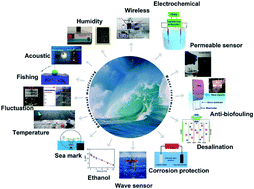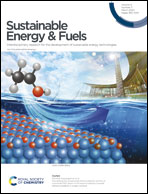Triboelectric nanogenerators for a macro-scale blue energy harvesting and self-powered marine environmental monitoring system
Abstract
Despite the fact that the ocean contains extensive undeveloped resources and energy, it is still being underutilized owing to the current technical flaws, such as low conversion efficiency and complex manufacture. Compared to an electromagnetic generator (EMG), a triboelectric nanogenerator (TENG) has advantages in harvesting the flow energy, particularly in the low frequency range. As a rapid development in TENG for utilizing the ocean energy, it is necessary to summarize its periodic progress. In this review, the recent research achievements of TENG in the ocean energy field are reviewed, which concentrate on the optimized structural design and working mechanism in macro-scale blue energy and small-scale marine sensing systems. First, the performance comparison of TENG and EMG is conducted. Then, the latest achievements of the three types of devices, namely water-involved TENG, non-water-involved TENG and hybrid TENG, are summarized. Next, the self-powered small-scale marine sensing system based on TENG for ocean environmental monitoring and water treatment is exhibited. Finally, we summarized the prospects and challenges of the macro-scale blue energy and small-scale marine applications with TENG.

- This article is part of the themed collection: Sustainable Energy and Fuels Recent Review Articles


 Please wait while we load your content...
Please wait while we load your content...